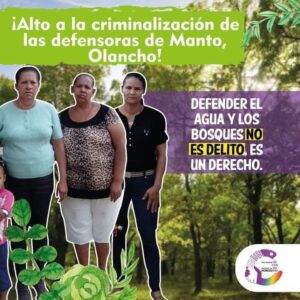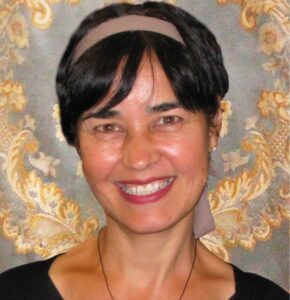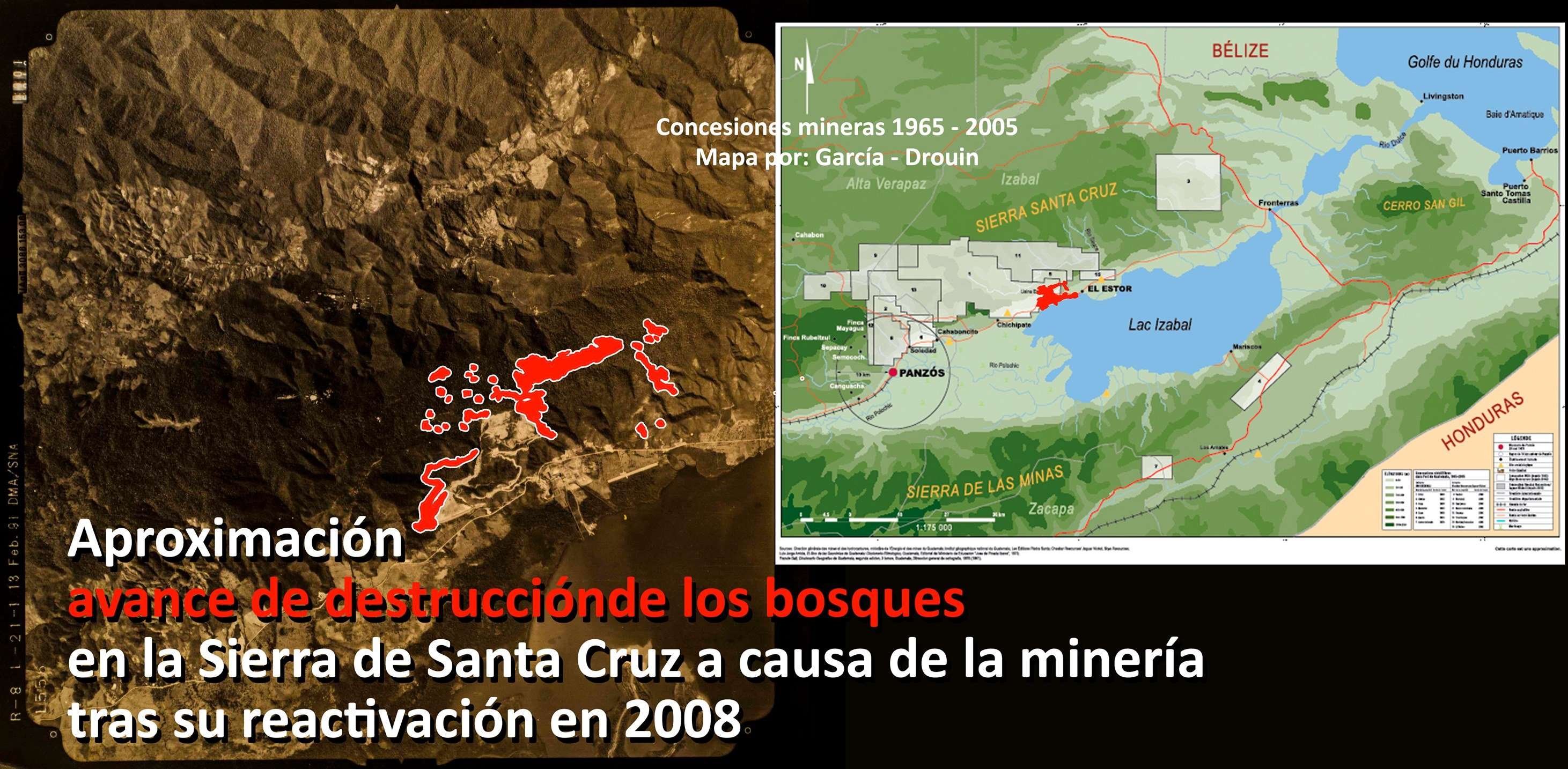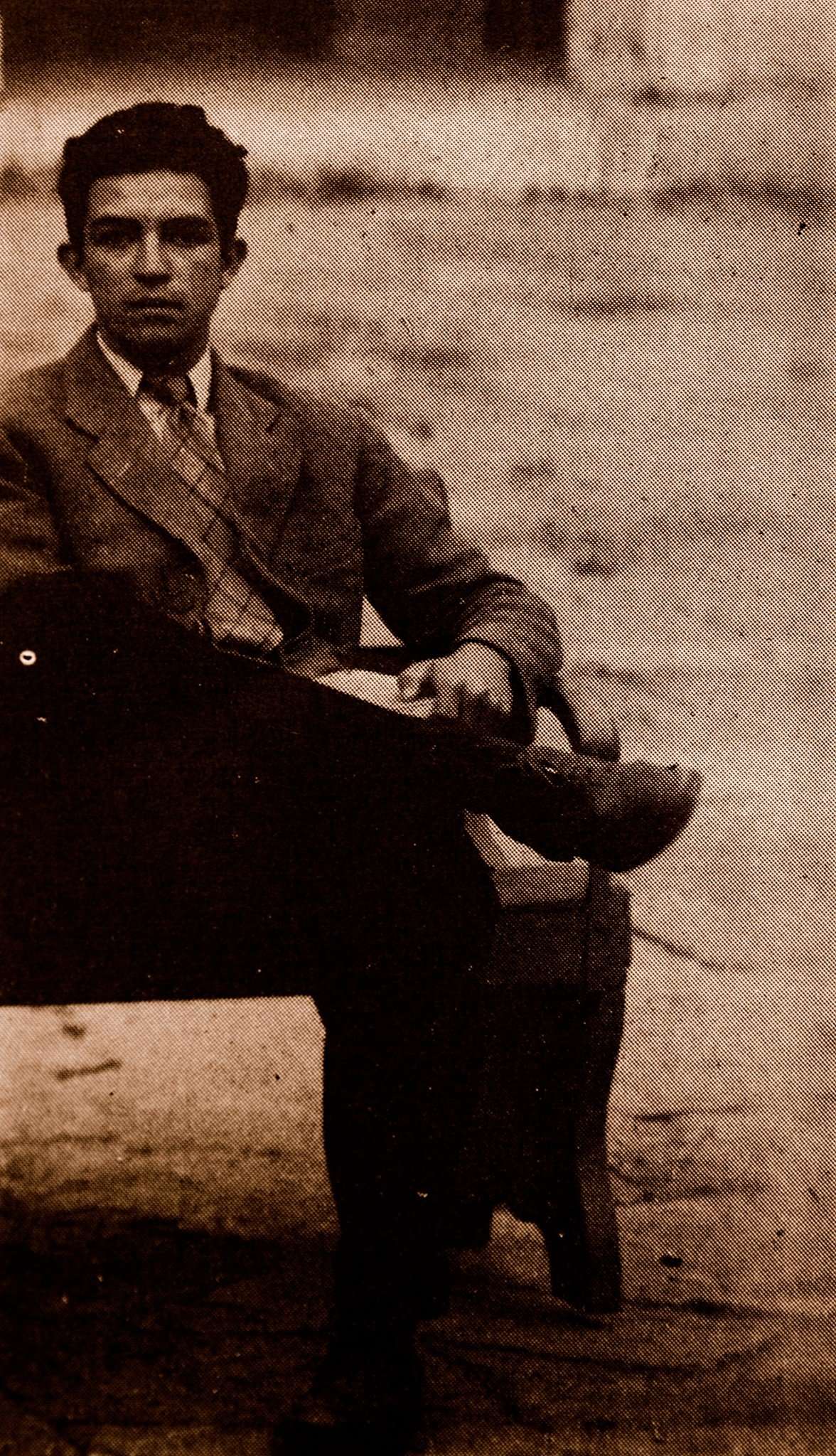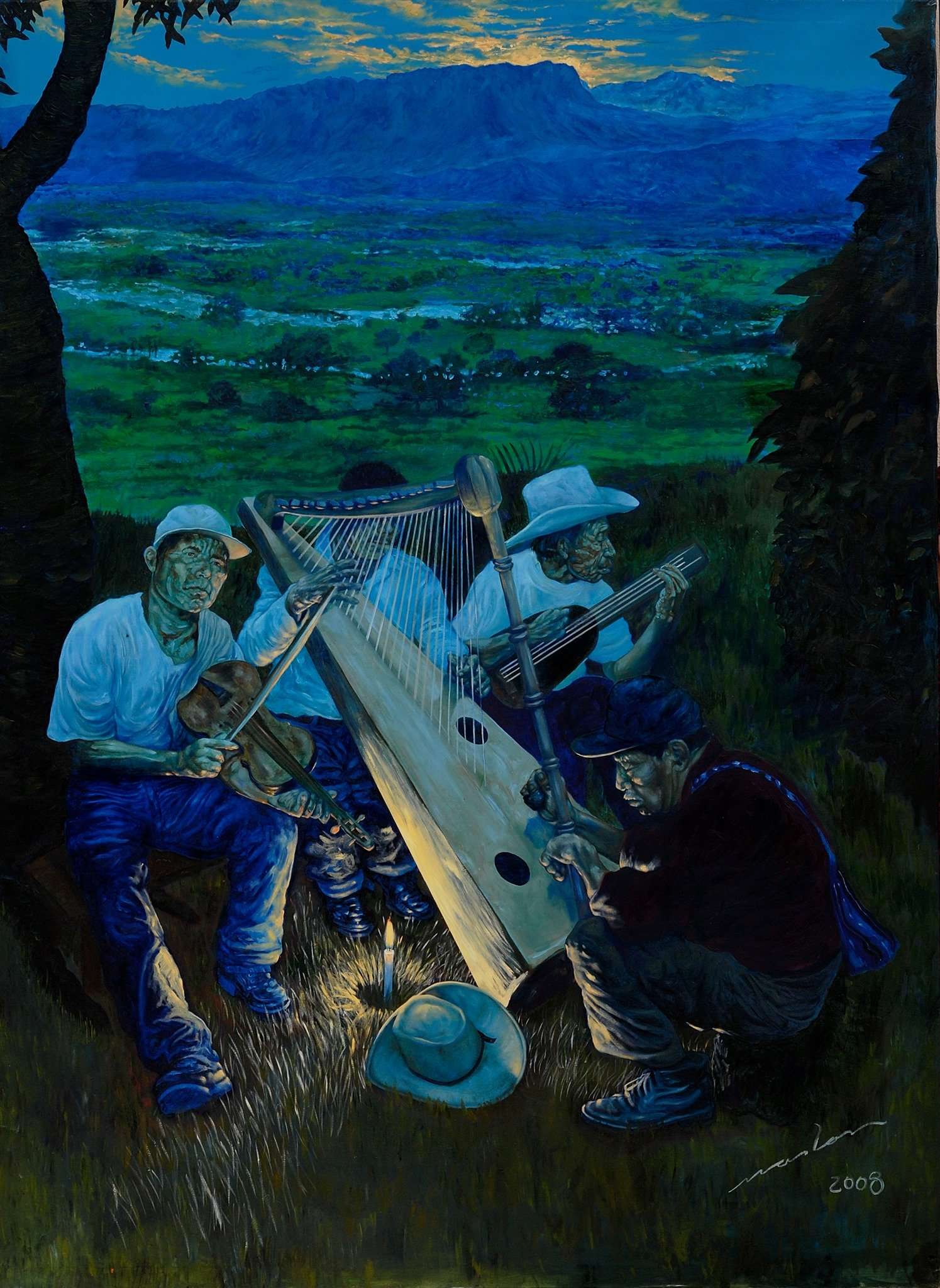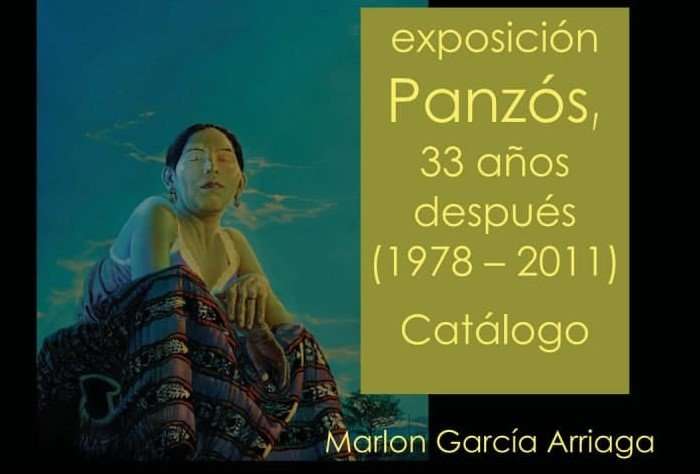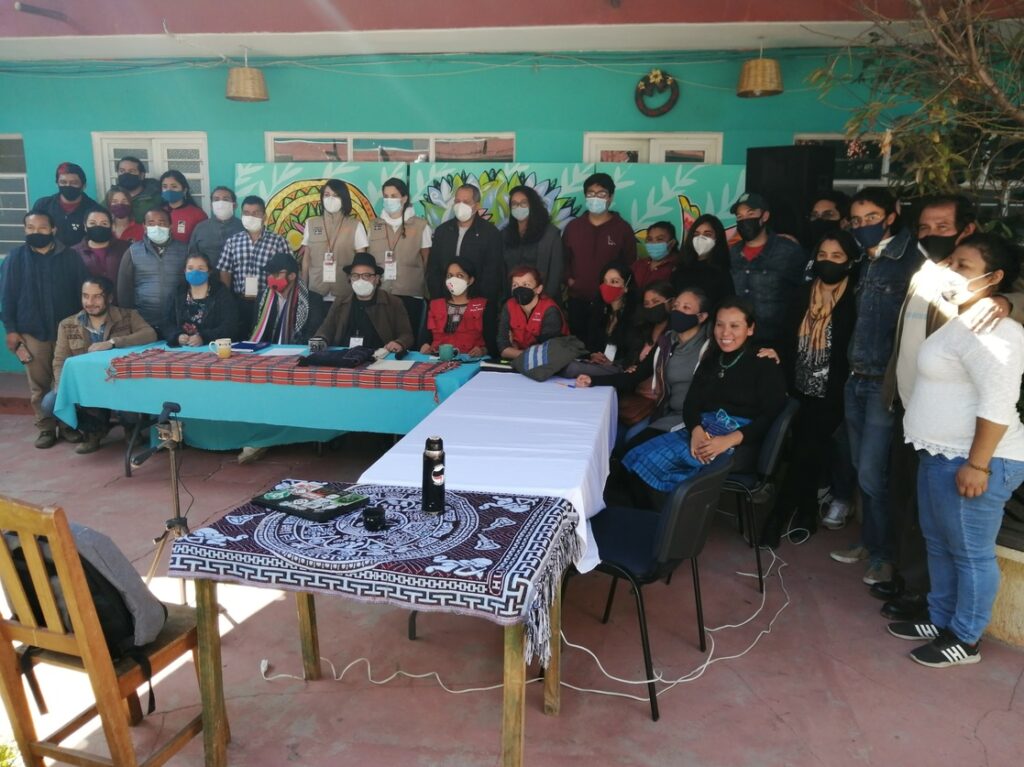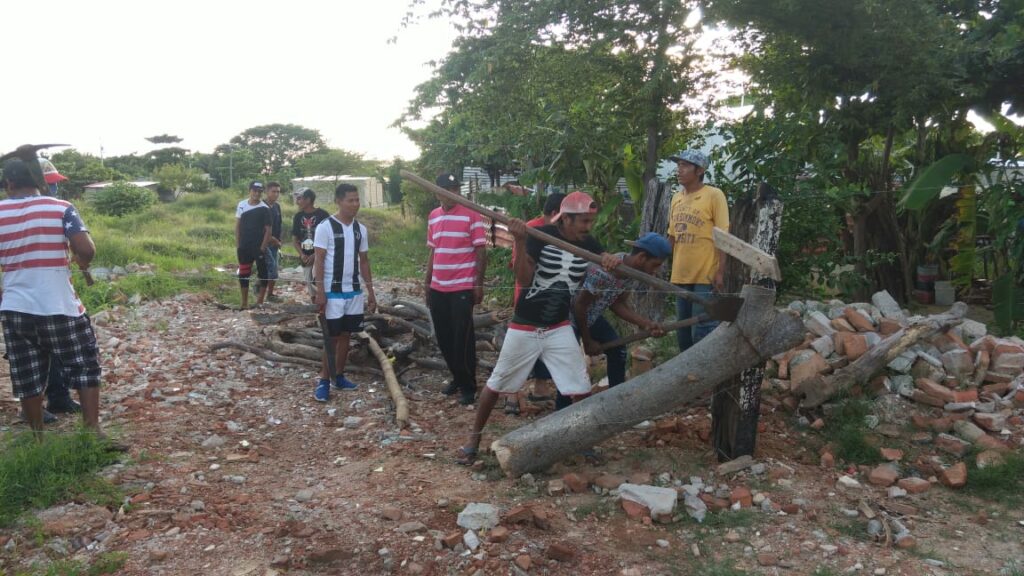How Defensa Zapatista tried to explain Zapatismo’s mission and other happy reasonings to Esperanza
“All right, I’m going to explain something very important to you. But don’t take notes—just keep it in your head. You might leave the notebook laying around anywhere, but you have to carry your head with you all the time.”
Defensa Zapatista paced back and forth, just like the late SupMarcos used to do when he was explaining something really important. Esperanza was sitting on a tree stump, over which she had wisely placed a piece of plastic tarp to cover the damp wood which was covered in moss, mushrooms, and dry twigs.
“You think we’re going to be able to see where the struggle will take us?” Defensa Zapatista blurted out, gesturing in no particular direction with her little hands.
Esperanza tried to think of how to answer, but it was clear Defensa Zapatista was asking a rhetorical question and wasn’t interested in an answer. She was asking a question that led to other questions. According to Defensa Zapatista, she was following the scientific method.
“The problem isn’t getting to the destination, but making the path. That is, if there is no path, one has to make it. That’s the only way,” she continued, brandishing a machete—who knows where she got that, I’m sure somebody somewhere is looking for it.
“So the thing is that the problem has changed—the most important thing now is the path. If there is no path to where you want to go, well then that’s your principal concern. So, what do we do if there’s no path to where we want to go?”
Esperanza responds confidently: “We wait until it stops raining so we don’t get wet making the path.”
“No!” Defensa yells, throwing her hands up and clutching her head, ruining the hairdo her mom had spent a half hour fixing.
Esperanza hesitates and then tries again, “I know: we lie to Pedrito and tell him that there’s a bunch of candy where we want to go, but no way to get there, and whoever makes a path the fastest gets all the candy.”
“You think we’re going to ask the men? Hell no! We’re going to do it ourselves as the women that we are,”Defensa responds.
“True,” Esperanza concedes, “plus maybe there will actually be chocolate there.”
Defensa continues, “But what if we get lost as we try to make the path?”
Esperanza responds promptly, “We yell for help? Set off some firecrackers or take the conch shell along so we can call the village to come rescue us?”
Defensa sees that Esperanza is taking the issue quite literally, and worse, getting the approval of everyone gathered around. The cat-dog, for example, is licking his lips imagining the pot of chocolates at the end of the rainbow; the one-eyed horse suspects that there also might be maize with salt and maybe another pot full of plastic bottles; and Calamidad is practicing the choreography designed by SupGaleano called “pas de chocolat,’ which consists of balancing rhinoceros-style over a large pot.
Elías Contreras, meanwhile, had been sharpening his machete on both sides since the very first question.
A little beyond him, an undefined being bearing extraordinary resemblance to a beetle and carrying a sign that reads “call me Ismael,” is debating Old Antonio over the advantages of stasis on dry land, arguing, “Yes indeed my dear Queequeg, no white whale goes near a port.” [i] The old indigenous Zapatista, involuntary teacher of the generation that rose up in arms in 1994, rolls a cigarette and listens attentively to the beetle’s arguments.
Defensa Zapatista assumes that she, just like science and art, is in the difficult position of being misunderstood, like a pas de deux without the embrace to facilitate the pirouettes or the support for a porté; like a film held prisoner in a can, waiting for a gaze to rescue it; like a port without a ship to dock there; like a cumbia awaiting hips to give it action and destination; like a concave Cigala without its convex[ii]; like Luz Casal on her way to meet the flor prometida[iii]; like Louis Lingg without the punk Bombs[iv]; like Panchito Varona looking behind a chord for a stolen April[v]; like a ska without a slam; like praline ice cream without a Sup to do it justice.
But Defensa being defense and also Zapatista, accepts none of this and, in resistance and rebellion, looks to Old Antonio for assistance.
“Storms respect no one; they hit both sea and land, sky and soil alike. Even the innards of the earth twist and turn with the actions of humans, plants, and animals. Neither color, size, nor ways matter,” Old Antonio says in a low voice.
Everyone falls silent, half out of respect and half out of terror.
Old Antonio continues: “Women and men seek to take shelter from wind, rain, and broken land, waiting for it to pass in order to see what is left. But the earth does more than that; it begins to prepare for what comes next, what comes after. In that process it begins to change; mother earth does not wait for the storm to pass in order to decide what to do, but rather begins to build long before. That is why the wisest ones say that the morning doesn’t just happen, doesn’t appear just like that, but that it lies in wait among the shadows and, for those who know where to look, in the cracks of the night. That is why when the men and women of maize plant their crops, they dream of tortilla, atole, pozol, tamale, and marquesote[vi]. Even though those things are not yet manifest, they know they will come and thus this is what guides their work. They see their field and its fruit before the seed has even touched the soil.”
“When the men and women of maize look at this world and its pain, they also see the world that must be created and they make a path to get there. They have three gazes: one for what came before; one for the present; and one for what is to come. That is how they know that what they are planting is a treasure: the gaze itself.”
Defensa agrees enthusiastically. She understands that Old Antonio understands the argument that she could not explain. Two generations distant in calendars and geographies build a bridge that both comes and goes… just like paths.
“That’s right!” she almost shouts and looks fondly at the old man.
She adds, “If we already know where we want to go, that means we also know where we don’t want to go. So every step we take moves us toward one path and away from another. We haven’t gotten there yet, but the path we walk shows us what our destination will be. If we want to eat tamales, we’re not going to plant squash.”
The whole crowd makes an understandable gesture of disgust, imagining a horrible squash soup.
“We live out the storm however we know how, but we are already preparing what comes next. We prepare it now. That is why we have to take our word far and wide. It doesn’t matter if the person who said it originally isn’t there anymore; rather what matters is that the seed reaches fertile ground and grows. Our word must support others. That is our mission: to be a seed that looks for other seeds,” Defensa Zapatista declares, and looking at Esperanza asks, “Do you understand?”
Esperanza stands up and with all the solemnity she can muster at 9 years of age, responds:
“Yes, of course. I have understood that we are all going to die miserably.”
But then she adds immediately, “But we’re going to make it worth it.”
Everyone applauds.
In order to reinforce Esperanza’s “make it worth it,” Old Antonio takes a bag of chocolate “kisses” out of his bag.
The cat-dog downs a good number of them in one gulp, though the one-eyed horse prefers to continue gnawing on its plastic bottle.
Elías Contreras, EZLN investigative commission, repeats in a low voice, “we’re going to make it worth it,” and his heart and thoughts go to brother Samir Flores and those who confront, with dignity as their only weapon, the loud-mouthed thief of water and life who hides behind the weapons of the overseer, who himself blabbers on and on to hide his blind obedience to the true Ruler, which is first, money, then more money, and in the end, still money.[vii] It is never justice, never freedom, and never, ever life.
The beetle begins to talk about how a chocolate bar kept him from dying on the Siberian steppes as he was traveling from the lands of Sami[viii]–where he sang the Yoik[ix]—in Selkup territory[x], to pay tribute to the Cedar, the tree of life. “I went to learn, that’s what journeys are for. There are resistances and rebellions that are no less important and heroic because they are far away,” he says as he uses his many legs to liberate a chocolate from its aluminum foil, applaud, and gulp down a portion of it, all at the same time.
Calamidad, for her part, has understood perfectly well what it means to think about what comes next and with her hands muddied with chocolate, exclaims enthusiastically, “vamos a jugar a las palomitas!”
-*-
From the Zapatista Center for Maritime-Terrestrial Training,
SupGaleano giving a workshop on “Internationalist Vomiting”
Mexico, December of 2020.
From the notebook of the Cat-Dog: The Treasure is the Other
“Upon finishing, he looked at me slowly with his one eye and said, ‘I was waiting for you, Don Durito. Know that I am the last true, living pirate in the world. And I say “true” because now there are an infinite number of “pirates” in financial centers and great government palaces who steal, kill, destroy and loot, without ever touching any water save that of their bathtubs. Here is your mission (he hands me a dossier of old parchments): find the treasure and put it in a safe place. Now, pardon me, but I must die.’ And as he said those words, he let his head fall to the table. Yes, he was dead. The parrot took flight and went out through a window, saying, ‘The exile of Mytilene is dead, dead is the bastard son of Lesbos, dead the pride of the Aegean Sea.[xi] Open your nine doors, fearsome hell, for there the great Redbeard will rest. He has found the one who will follow in his footsteps, and the one who made of the ocean but a tear now sleeps. The pride of true Pirates will now sail with Black Shield.’ Below the window, the Swedish port of Gothenburg spread out, and, in the distance, a nyckelharpa[xii] was weeping . . .”
Don Durito of the Lacandón Jungle. October 1999.[xiii]
Section: Three deliriums, two groups, and a rioter.
If we follow Admiral Maxo’s route, I think we’d arrive faster by walking over the Bering Strait:
Just try and stop us:
Motor is ready, now just missing… the boat?!
First crew:
Second crew:
We don’t have the boat yet, but we’ve got the guy who’ll lead the riot onboard:
[i] The first line of Herman Melville’s Moby-Dick. Ishmael is the narrator of the book. Queequeg is another character in the book.
[ii] “Concavo y convexo” (Concave and convex) is the title of a love song by Flamenco singer Diego el Cigala.
[iii] “Flor prometida” (Promised flower) is the title track of Spanish pop artist Luz Casal’s seventh studio album.
[iv] Louis Lingg and the Bombs is a French anarchist punk band named in honor of Chicago anarchist Louis Lingg, who was sentenced to death in 1887 for allegedly making the bombs used in the Haymarket Square riot. Lingg committed suicide in prison using an explosive device rather than be executed.
[v] “Quién me ha robado el mes de abril”, (Who stole the month of April from me?) is a song written by renowned Spanish rock music writer and producer Panchito Varona and sung by Spanish songwriter and musician Joaquín Sabina.
[vi] All maize-based food and drink common in southern Mexico.
[vii] This references the struggle of the communities in Morelos resisting the construction of a thermo-electric plant in their region which is part of the “Integrated Plan for Morelos” mega-project. Samir Flores, one of the leaders of the resistance, was killed in February, 2019, in the course of this struggle. The “overseer” refers to Mexican President Andrés Manuel Lopez Obrador who backs the megaproject and protects the business interests that would divert water supplies from local communities to the plant.
[viii] The Sami are an indigenous people inhabiting what is now the Northern parts of Sweden, Norway, Finland and Russia.
[ix] Yoik is a traditional form of song among the Sami people.
[x] The Selkup are an indigenous people whose traditional territory is in central Russia between the Ob and Yenisey rivers. Trees are an important religious symbol for the Selkup, with cedar personifying the world of the dead.
[xi] This passage refers to Barbarossa (Redbeard) who was born in Mytilene on the island of Lesbos in the Aegean Sea and wound up in Constantinople as the Admiral of the Sultan’s fleet.
[xii] A nyckelharpais a traditional Swedish stringed instrument played with a bow and keys that slide under the strings.
[xiii] The excerpt above is from a 1999 communiqué in which Don Durito, the recurring beetle character in EZLN writings, returns from a long voyage to Europe. Translation and footnotes borrowed from “Conversations with Durito”: http://cril.mitotedigital.org/sites/default/files/content/cwdcomplete_0.pdf

